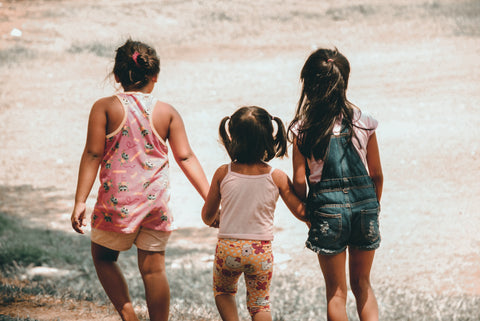February is Black History Month, which is very worth a mini-lesson for your children, as it’s a month that we celebrate the achievements and history of African Americans. A bit of history (per National Geographic Kids):
In 1915, in response to the lack of information on the accomplishments of black people available to the public, historian Carter G. Woodson co-founded the Association for the Study of Negro Life and History. In 1926, the group declared the second week of February as "Negro History Week" to recognize the contributions of African Americans to U.S. history.

Dr. Carter G. Woodson (1875-1950), National Park Service
The week-long event officially became Black History Month in 1976 when U.S. president Gerald Ford extended the recognition to "honor the too-often neglected accomplishments of black Americans in every area of endeavor throughout our history." Black History Month has been celebrated in the United States every February since.

At the very least, we can tell our children the stories of Dr. Martin Luther King, Jr. and Rosa Parks, both who fought with dignity and pride to stand up for what is right as true advocates of peace. Our magazine Issue 8 tells the story of Jesse Owens, and how he became an Olympic star in the face of adversity. His story—and so many others—are full of hard truths (slavery, racism, segregation, oppression, the Civil Rights Movement). Yes, people were separated based on skin-color alone. And yes, we are different, but actually we are more alike. Appreciating differences is an early lesson, but a necessary one that can evoke empathy and kindness.
Add books in your rotation that reflect diversity and are inclusive in authorship and storytelling. Don’t shy away from tough questions about race and its history in our country—children need straight-forward truths as they learn and grow. Affirm value for all people, in all places, in the complex world in which we all live.
Equality means equal for all (and here are a few books to start the conversation). And remember, understanding and tolerance can be taught all year round. (PBS Kids has outstanding resources, so try this and this).

It also goes without saying that Valentine’s Day is this week, which, yes, promotes love and loving and those wonderful virtues of kindness and affection. However, we can also view it as an opportunity to discuss how compassion and goodness directed toward others can be an every single day thing, not reserved for one solitary holiday day.
It can be a way to teach our children to reach out to peers that may not view the holiday as enjoyable, because of grief or loneliness. It’s the opportunity to keep an eye out for others that may need extra love or compassion. Teach your children that deliberate daily acts of kindness matter. Focus on your children’s caring gestures and honor them for choosing goodness. These are all small starts, but worthy ones toward raising generous, tolerant, thoughtful children.
